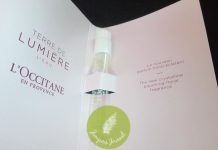

To earmark Global Handwashing Day 2023, Dettol in collaboration with the Ministry of Health (MOH), Global Hygiene Council (GHC), Infectious Disease expert Professor Dr Zamberi Sekawi and Watsons came together for an informative panel discussion to exchange insights around the importance of improved hygiene practices and contextualise global and local public health landscapes. This joint effort by key health experts is aimed at supporting the Ministry of Health’s Madani Afiat programme in encouraging the adoption of more effective hygiene and handwashing habits across Malaysia.
During the discussion, it was determined that communicable diseases are on the rise as comprehensive handwashing and hygiene practices adopted during the COVID-19 pandemic are diminishing despite sustained handwashing being the single most effective preventative measure. The panel also stressed that the spread of infectious diseases and the effects of a changing climate are only intensifying.


Professor Emerita Elizabeth Scott, Chair of the GHC, reported that the devastating impact of infectious diseases on society has never been more evident. As the COVID-19 pandemic shows signs of ending, ¹the ‘silent pandemic’ of antimicrobial resistance (AMR) is ongoing, with AMR recognised as one of the largest threats to human health. ²It is estimated that, in 2019, the deaths of 4.95 million people were associated with drug-resistant bacterial infections. ³If no action is taken to stop the spread of AMR, this could rise to 10 million deaths a year by 2050 with common procedures such as caesarean sections carrying greater risks.
The GHC recognises that hygiene practices such as handwashing, demonstrate an accessible means to tackling AMR through reducing the risk of infection and the need for antibiotics. Hand hygiene can help to reduce the spread of infections protecting 1 in 3 children affected by diarrhoea and has shown a 30% reduction in antibiotic prescriptions for children with respiratory infections. With that in mind, the GHC urges governments and policymakers to elevate hygiene’s importance to protect millions of lives.


“In the battle against infectious diseases, good hygiene practices are our first line of defence. The recent global challenges posed by infectious diseases have underscored the urgency of adhering to these basic yet effective measures. Locally, the top five most common infections since 2021 are COVID-19, Dengue fever, Tuberculosis, food poisoning and Hand, Foot, and Mouth Disease (HFMD), three of which can be mitigated through the practice of good hand hygiene. By incorporating good hygiene into our daily routines and promoting its importance within our communities, we can collectively mitigate the spread of infectious diseases and build a healthier, more resilient society,” added Prof Zamberi.
To address this on-going concern, Dettol, the ever-superior and germ protection brand, has joined hands with the MOH to amplify the adoption of more effective hygiene practices across the nation, in line with the Madani Afiat programme – a platform designed by the MOH to distribute essential disease prevention and hygiene information to the public through community outreach initiatives.
Taking the reins to support and drive the Madani Afiat health agenda, the collaborative effort aims to amplify the brand’s key mission in protecting lives, reducing the burden of illness, and driving behaviour change that creates lifelong hygiene habits. This effort was built on Dettol’s continuous ‘Hygiene Quest’ curriculum, a public awareness campaign that has engaged 250,000 students to date with a target to reach 4 million students by 2024 and instil effective hygiene habits in school children by disseminating critical information about handwashing practices. Through various platforms and on-ground consumer engagement, this collaboration stands as a significant milestone in the brand and the Ministry’s shared commitment to reduce school absenteeism and create long-lasting hygiene habits.
“Good hygiene practices are the cornerstone of a healthier society. They form the first line of defence against preventable diseases and play a vital role in safeguarding public health. By embracing proper hygiene habits, we fortify our collective resilience, nurturing a safer and more vibrant community for all,” said Dr. Ho Bee Kiau from the MOH.
Tiffany Tang, Marketing Director for Health, Malaysia and Singapore for Reckitt, expressed her enthusiasm about the event, stating, “We are delighted to be able to work with key stakeholders and leaders in the health industry. By working closely with these experts, we can offer the public accurate and comprehensive information about cultivating improved hygiene habits. Hand hygiene is the simplest and most effective way to curb the spread of infectious diseases as 80% of germs are spread through the hands and up to seven surfaces can be potentially contaminated via a single hand. By prioritising this, we can reduce the burden of illness by offering communities superior solutions to incite behavioural change, motivating sustained hygiene habits.”
To symbolise their commitment to promoting hygiene awareness and to earmark Global Handwashing Day, Dettol introduced its inaugural ‘Hygiene Hour’ by illuminating the iconic KL Tower and dispatched the Dettol Hygiene Crew, dedicated e-hailing motorcyclists, to various communities, delivering essential hygiene kits composed of Dettol hand sanitiser to further drive the adoption of improved hygiene practices. The brand has also partnered with Watsons, the No.1 online and offline Health and Beauty Retailer in Malaysia, to help reinforce handwashing and effective hygiene practices throughout 700 stores with a target of educating over 500,000 shoppers in six months.
Pledging the brand’s dedication to fostering a healthier Malaysia. Dettol was also awarded the Malaysian Book of Records certification at the Global Handwashing Day event after achieving the Largest Children Participation in A Hand Washing Awareness Session which saw 4865 school children join the initiative.
“We firmly believe that platforms such as the Global Handwashing Day event and Hygiene Hour will encourage positive behavioural change and inspire the implementation of better hygiene and handwashing practices, influencing a cleaner, healthier future for all,” concluded Tang.
References:
¹United Nations. UN News. The end of the COVID-19 pandemic is in sight. 2022. Available at: https://news.un.org/en/story/2022/09/1126621. Accessed: February 2023.
²The World Health Organisation. News-Room. Antimicrobial Resistance Fact Sheet. 2021. Available at: Antimicrobial resistance (who.int) Accessed: February 2023.
³The Lancet. Antimicrobial resistance: time to repurpose the Global Fund. Lancet. 2022;399(10322):335. Available at: https://pubmed.ncbi.nlm.nih.gov/35065769/
O’Neil J. Review on antimicrobial resistance: tackling drug-resistant infections globally. 2014. Available at: https://amr-review.org/Publications.html
Centers for Disease Control and Prevention (CDC), Handwashing in Communities, Clean Hands Save Lives, March 2023. Available at: https://www.cdc.gov/handwashing/why-handwashing.html
Azor-Martinez E, Yui-Hifumi R. Effectiveness of a hand hygiene program at childcare centers: a cluster randomized trial. Pediatrics. November 2018;142 (5). Available from: file://sbs/Public/Current%20Clients%20%26%20Campaigns/GHC/AMR/Press%20releases/Final/ncbi.nlm.nih.gov/pubmed/30297500




































































































